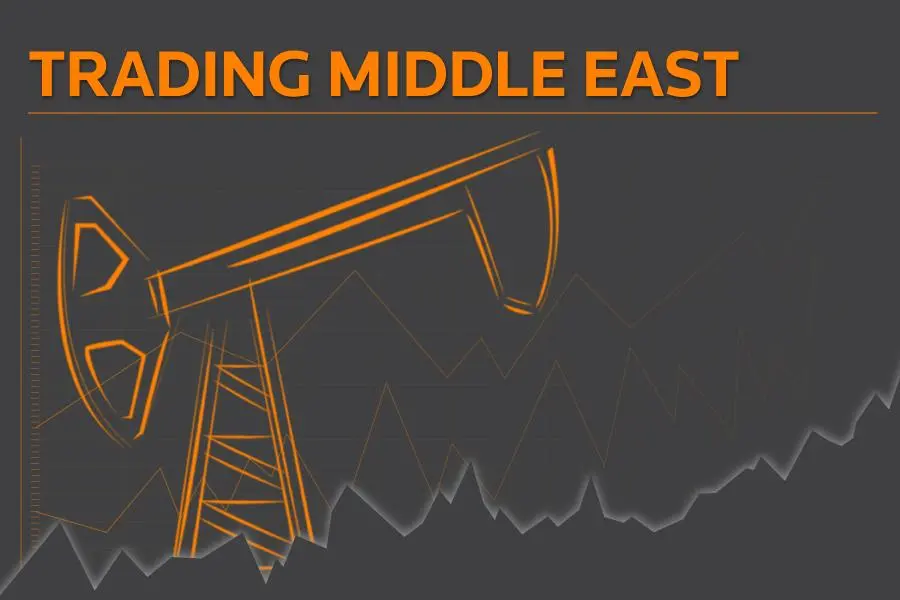PHOTO
Oil prices dropped early on Wednesday after reaching 2014 highs a day earlier. A report by the American Petroleum Institute (API) on Tuesday showed that United States crude inventories rose by 1.8 million barrels in the week to April 6 to 429.1 million, which weighed on oil prices.
Brent crude futures reached $70.78 per barrel at 0154 GMT, down 26 cents, or 0.4 percent, from their last close. Brent had surged by more than 3 percent on Tuesday to hit its highest level since late 2014, at $71.34 a barrel.
U.S. WTI crude futures were at $65.38 a barrel, down 13 cents, or 0.2 percent from their last settlement.
Geopolitical tensions in the Middle East and concerns that the United States could renew sanctions against Iran, a major Middle East oil producer, put oil markets on edge.
“Oil prices are towering on the heightened tension in the Middle East,” Stephen Innes, head of trading for Asia/Pacific at futures brokerage OANDA in Singapore told Reuters.
OANDA’s Innes said the API report had “temporarily taken a bit of wind out of the market”.
In stocks, Asian shares on Wednesday added to gains made on Tuesday after Chinese President Xi Jinping promised to open the country’s economy further and to lower import tariffs on products, including cars, calming investors’ fears of an escalating United States-China trade row.
On Wall Street, the Dow advanced 1.8 percent, the S&P 500 rose 1.7 percent and Nasdaq added 2.1 percent overnight.
In the Middle East, stock markets were mixed on Tuesday.
Egypt’s index gained 1.7 percent after the stock market was closed on Sunday and Monday for holidays. Orascom Telecom and Telecom Egypt rose 1.2 percent and 2.3 percent.
The Saudi stock index edged down 0.3 percent, mostly dragged down by stocks in the energy and petrochemical sectors. National Petrochemal lost 1.8 percent and Advanced Petrochemical fell 2.6 percent.
Al Rajhi Bank fell back 0.8 percent.
Dubai’s index added 0.3 percent, as Emaar Properties gained 1.3 percent, while neighbouring Abu Dhabi’s index climbed 1.0 percent as Abu Dhabi National Energy jumped 5.4 percent in heavy trade.
Qatar’s index added 0.8 percent after several companies raised foreign ownership limits on Monday. Qatar Electricity and Water Co was up 2.0 percent, Industries Qatar was 2.2 percent higher while Qatar Islamic Bank rose 2.9 percent.
Elsewhere in the Gulf, Oman’s index fell 0.8 percent, Bahrain’s index edged up 0.04 percent and Kuwait’s index edged up 0.1 percent.
In currencies, the dollar index against a basket of six major currencies was little changed on Wednesday after shedding 0.3 percent the previous day.
Against the yen, the dollar lost 0.05 percent.
Gold prices rose on Wednesday on a weaker dollar.
Spot gold was on track for a fourth straight session of gains, up 0.2 percent at $1,341.26 an ounce as of 0114 GMT.
In other news, Bahrain’s central bank said on Tuesday that its net foreign assets dropped to a six-month low of 604.8 million dinars ($1.60 billion) in February, from 750.8 million dinars in January.
For access to market moving insight, subscribe to the Trading Middle East newsletter by clicking here
Our Standards: The Thomson Reuters Trust Principles
Disclaimer: This article is provided for informational purposes only. The content does not provide tax, legal or investment advice or opinion regarding the suitability, value or profitability of any particular security, portfolio or investment strategy. Read our full disclaimer policy here.
© ZAWYA 2018




















